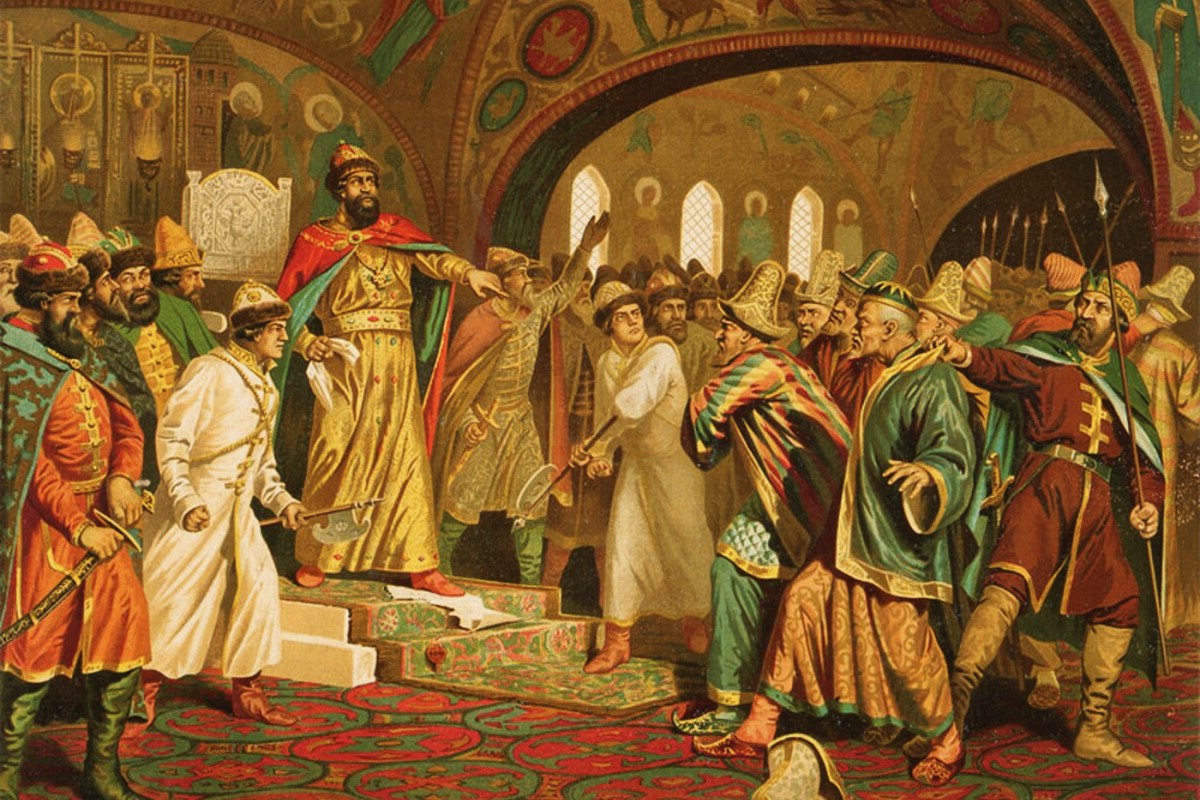
What was the Tver Uprising of 1327? The Tver Uprising of 1327 was a significant revolt in medieval Russia. It erupted in the city of Tver against the Mongol-Tatar yoke. The uprising began when the local population, fed up with heavy taxation and oppression, killed a Mongol envoy. This act of defiance quickly escalated into a full-blown rebellion. The Mongol rulers, known for their ruthless retaliation, responded with a massive military force. The uprising was brutally crushed, leading to widespread destruction and loss of life. This event marked a pivotal moment in Russian history, highlighting the intense resistance against Mongol rule.
Key Takeaways:
- The Tver Uprising of 1327 was a pivotal event in Russian history, marking the resistance of the people of Tver against the oppressive Mongol Empire.
- The uprising inspired future rebellions, left a lasting cultural impact, and symbolized the resilience and courage of the Russian people in the face of oppression.
The Tver Uprising: A Glimpse into History
The Tver Uprising of 1327 was a significant event in Russian history. It marked a pivotal moment in the struggle between the Tver Principality and the Mongol Empire. Here are some fascinating facts about this historical uprising.
-
The Tver Uprising took place in the city of Tver, located northwest of Moscow.
-
The revolt was primarily against the Mongol Empire, which had imposed heavy tributes on the Russian principalities.
-
The uprising began on August 15, 1327, sparked by the arrival of Chol-khan, a Mongol envoy.
Key Figures and Events
Understanding the main players and events helps grasp the uprising's complexity.
-
Chol-khan, also known as Shevkal, was the Mongol official whose actions ignited the rebellion.
-
Grand Prince Alexander of Tver led the uprising, rallying his people against the Mongol oppressors.
-
The people of Tver were infuriated by Chol-khan's demand for excessive tributes and his disrespect towards their customs.
-
The rebellion started when Chol-khan's men tried to seize a horse from a local deacon, sparking widespread outrage.
The Course of the Uprising
The uprising unfolded rapidly, with significant events marking its progression.
-
The citizens of Tver quickly mobilized, attacking Chol-khan's residence and killing many of his men.
-
Chol-khan himself was killed during the initial outbreak of violence.
-
The uprising spread to other parts of the Tver Principality, with many joining the revolt against the Mongols.
-
The Mongol response was swift and brutal, as they sought to crush the rebellion.
Aftermath and Consequences
The aftermath of the Tver Uprising had long-lasting effects on the region and its people.
-
The Mongol Khan, Uzbeg, sent a large army to Tver to suppress the uprising.
-
Grand Prince Alexander of Tver fled to Pskov to escape the Mongol retaliation.
-
The Mongol forces devastated Tver, killing many inhabitants and burning the city.
-
The uprising led to a significant shift in power dynamics among the Russian principalities.
Legacy of the Tver Uprising
The legacy of the Tver Uprising is still remembered in Russian history.
-
The uprising highlighted the growing discontent among the Russian people towards Mongol rule.
-
It also demonstrated the willingness of Russian principalities to resist Mongol domination.
-
The Tver Uprising inspired future rebellions against the Mongol yoke.
-
The event is often seen as a precursor to the eventual liberation of Russia from Mongol rule.
Cultural and Historical Impact
The Tver Uprising left a lasting cultural and historical impact on Russia.
-
The uprising is commemorated in Russian folklore and literature, symbolizing resistance against oppression.
-
It served as a rallying point for Russian national identity and unity.
-
The events of the uprising were recorded in various chronicles, preserving its memory for future generations.
-
The Tver Uprising is studied by historians as a significant event in the history of medieval Russia.
-
It influenced the policies of subsequent Russian rulers towards the Mongol Empire.
-
The uprising remains a testament to the resilience and courage of the people of Tver.
Final Glimpse at the Tver Uprising
The Tver Uprising of 1327 stands as a pivotal moment in Russian history. It showcased the resilience of the Tver people against Mongol rule. This rebellion, sparked by the oppressive actions of Baskak Shevkal, led to a significant shift in power dynamics within the region. The uprising not only highlighted the growing discontent among Russian principalities but also set the stage for future resistance against Mongol domination. Understanding these events helps us appreciate the complex tapestry of medieval Russian history. The bravery and determination of Tver's citizens continue to inspire, reminding us of the enduring human spirit in the face of tyranny. This historical episode underscores the importance of unity and resistance in the fight for freedom and justice.
Frequently Asked Questions
Was this page helpful?
Our commitment to delivering trustworthy and engaging content is at the heart of what we do. Each fact on our site is contributed by real users like you, bringing a wealth of diverse insights and information. To ensure the highest standards of accuracy and reliability, our dedicated editors meticulously review each submission. This process guarantees that the facts we share are not only fascinating but also credible. Trust in our commitment to quality and authenticity as you explore and learn with us.
